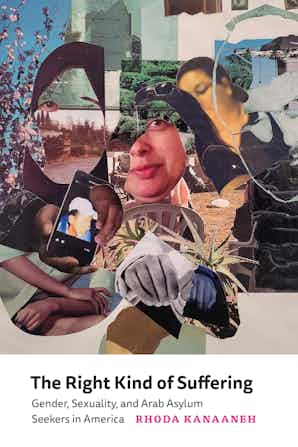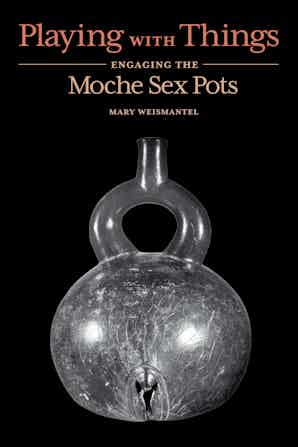Every week, our wonderful publicity team tracks the cross-platform media coverage our authors and their books receive. We’re proud to share our latest and greatest highlights below with links to where you can read more about these great titles!
You’ll find that our Fall 2022 titles got plenty of love last week, find the rest of the season’s gems here. Our Middle Eastern Studies and Latinx & Chicanx Studies collections were pretty popular last week in the media; scroll so we can delight together in the well-deserved attention received by our authors and their books.
Middle Eastern Studies
Rhoda Kanaaneh, author of The Right Kind of Suffering, was interviewed about her book on the Texas Standard.
Making Levantine Cuisine was reviewed at Food Anthropology. Noha Fikry calls the book, “A comprehensive and inviting account of Levantine Cuisine,” going on, “As an inviting and accessible read for food scholars, ethnographers, graduate students, and home cooks, this edited volume engages readers to discuss method, theory, recipes, geography, and research in a new light. Whether discussing kebabs, pistachios, or hummus, the volume offers so much to think with, cook, and snack on.”
Latinx & Chicanx Studies
Domino Perez, author of Fatherhood in the Borderlands, published an excerpt adapted from her book in the Houston Chronicle titled, “My search for Mexican American fathers in film.”
Elizabeth Farfán-Santos, author of Undocumented Motherhood, was interviewed about her book for the New Books in Anthropology channel of the New Books Network.
meXicana Fashions was reviewed in the Journal of American Folklore. Martha Gonzalez writes, “MeXicana Fashions is an invaluable tool for interrogating narratives in the age of social media and digital representation,” going on, “MeXicana Fashions would provide stimulating reading for undergraduates, graduates, or any individuals interested in fashion more generally. It inspires self-reflection and critical analysis around mainstream and individual fashioning by taking into account any and all contexts affected by white supremacist ideals—be it the boardroom, the digital world, the classroom, the club, or the mean streets of any urban city.”
Music
Maybe We’ll Make It was discussed in a profile of Margo at inews. Margo’s interview with WPLN’s “This Is Nashville” was also reaired this week.
Go Ahead in the Rain was included in a piece at Literary Hub titled, “The boygenius book club: 48 books the indie rockers think you should read,” which pulled together book recommendations that Phoebe Bridgers, Lucy Dacus, and Julien Baker have made in various interviews. The rec for Go Ahead in the Rain comes from Lucy Dacus in The Creative Independent: “I’m also reading Hanif Abdurraqib’s new book, Go Ahead in the Rain, about A Tribe Called Quest. I feel way more connected to that band, and to him. He has such a unique way of bringing care out of people.”
Texas

The Rob Roy Kelly American Wood Type Collection was reviewed at Fontstand News. Dan Reynolds writes, “[The Rob Roy Kelly American Wood Type Collection] is not just a must-have for any wood-type aficionados. The book sets a new typographic history bar.”
Architecture
Blue Architecture was reviewed in Environmental Philosophy. Kevin Siefert writes, “This decentralized account of architectural design reconceives the ways in which urban spaces are inhabited and the habituations of those living within such environs. Muller’s analysis carefully and critically meanders throughout different climates and cities, demonstrating the particular and non-universalizable agency of water.” Siefert goes on, “Written in an approachable manner for any student of the environment, architecture, art, or philosophy, Muller demonstrates an expertise and familiarity with the terrain of contemporary urban problems and their historical development…Arguing for an understanding of water as agential rather than material obstacle, Muller reconceives not only the task of urban architecture but sustainable development as a whole.”
Sociology
Grandmothers on Guard was reviewed in the American Journal of Sociology. Emine Fidan Elcioglu calls the book, “A timely, important contribution,” going on, “Drawing on an impressive 900 hours of participant observation and 25 in-depth interviews with members of the Minutemen movement’s California chapter, Johnson gives readers a rare glimpse into the daily world of organized nativism.” Elcioglu concludes, “Grandmothers on Guard immerses readers in a movement that, arguably, set the stage for Trump’s victory. This reason alone makes the book of interest to political sociologists. Scholars of immigration, politics, gender, race, and aging can also learn a lot from the author’s observations about how grandmotherhood—and I would add white grandmotherhood—can inspire political identity making, collective mobilization, and nativism. That the book is also a pleasurable read will make it appealing to any sociologist.”
History
Resisting Garbage was reviewed in the Journal of Urban Affairs. Marisa Sotolongo writes, “Pollans’s book is a robust history of municipal waste policy in Boston and Seattle, with useful policy ideas for those interested in more sustainable urban waste policy.”
Violence in the Hill Country was reviewed in the Journal of the Civil War Era. Christopher Menking writes, “[Roland] weaves a detailed and well-researched narrative of the years before, during, and after the Civil War, providing the reader with a vivid image of Hill Country life during this time.” Menking goes on, “Roland has created a well-written work that greatly enhances the historiography related to the period and region…General readers and historians alike will enjoy this book both for its readability and for the author’s diligent primary source research.”
Latin American Studies
Diana J. Montaño, author of Electrifying Mexico, was interviewed about her book on the Peoples & Things channel of the New Books Network.
Playing with Things was reviewed in the Canadian Journal of Archaeology. Aleksa K. Alaica writes, “Weismantel’s ethnographic training leads to rich interpretations about these vessels but also about ourselves. These sex pots are archaeological artifacts, but Weismantel approaches them from a place where they were and continue to be vibrant, once part of ancient social lives and still evoking strong reactions from museum visitors.” Alaica goes on, “Weismantel proposes a fresh, new, and innovative take on the Moche sex pots that have been of interest for decades. Her active engagement with scholarship on queer theory, materiality, and indigenous worldviews reinvigorates interpretations about the life-giving qualities of the sex pots as functional vessels and sacred instantiations of circulating fluids.”
Trail of Footprints was reviewed in Ethnohistory. Jessica Stair calls the book, “[An] innovative study of Indigenous mapmaking and intellectual history,” going on, “By placing Indigenous maps at the center of the study and presenting a distinct perspective with each chapter (patrons, painters, materials, and authentication), Hidalgo puts forth a compelling and comprehensive view of Indigenous mapmaking that highlights the nuances and complexities of how Indigenous maps were understood and used.” Stair concludes, “Hidalgo’s well-researched book presents a narrative of a vibrant and evolving Indigenous mapmaking tradition that adapted over the course of the colonial period…What is more, Hidalgo’s masterful translation of complex details from primary source documents into stimulating narratives will appeal to a broad readership interested in the history of colonial Mexico.”
___________________
And with that, I leave you with well wishes for a happy February. Thanks for joining us, see you soon!








